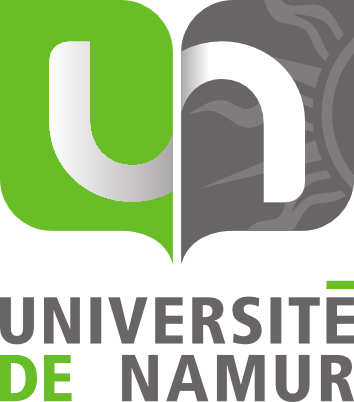Soutenance publique de thèse de doctorat en Sciences vétérinaires - Clément MARTIN
The smell of death - Development of detection methods and applications for “cadaver dogs” trainings
Date : 16/06/2023 13:00 - 16/06/2023 16:00
Lieu : Espace senghor, Avenue de la faculté d'Agronomie 2B B-5030 Gembloux
Orateur(s) : Clément MARTIN
Organisateur(s) : Claire Diederich
Jury
- Prof. FAUCONNIER Marie-Laure (Gembloux Agro-Bio Tech, ULiège), présidente
- Prof. VERHEGGEN François (Gembloux Agro-Bio Tech, ULiège), promoteur et secrétaire
- Prof. DIEDERICH Claire (département de médecine vétérinaire, UNamur), promotrice et secrétaire
- Prof. BROSTAUX Yves (Gembloux Agro-Bio Tech, ULiège)
- Prof. FOCANT Jean-François (département de chimie, ULiège)
- Prof. FRANCIS Frédéric (Gembloux Agro-Bio Tech, ULiège)
- Prof. VANDENHEEDE Marc (faculté de médecine vétérinaire, ULiège)
- Prof. BOXHO Philippe (faculté de médecine, ULiège)
- Dr. FORBES Shari (Forensic Sciences Program, University of Windsor)
Abstract
The decomposition of a human corpse is a complex process during which the body’s building blocks (e.g., carbohydrates, proteins, lipids) are broken down into by-products thank to chemical reactions mediated by bacterial activity. Volatile organic compounds (VOCs) are quickly released, but their nature and abundance are changing over the course of the decomposition. Even if several studies have endeavored to characterize its composition, the methodologies used would greatly benefit from optimizations. The characterization of these compounds can lead to several applications, including those on the training of police dogs specialized in the location of human remains. Unfortunately, this research topic is still largely understudied.
During the present PhD thesis, we have set three specific -but complementary-objectives: (i) Deciphering the impact of the environment a corpse decays in on the emission of VOCs; (ii) Developing a gas chromatography method to characterize cadaveric VOCs of freshly deceased people; and (iii) Exploring the training bases on the ability of detection dogs to locate this volatile profile.
In the first experimental chapter of this thesis, we have evaluated the impact of three environmental conditions on the decomposition of vertebrate cadavers, using rats as surrogate human models: openair decomposition, underground decomposition, and underwater decomposition. In all scenarios, common VOCs were highlighted (i.e., sulfur and nitrogen containing compounds). Necrophagous insects not only hasten the decaying process, but also impact the volatiles released at the beginning of the openair decomposition. The texture of the soil in which the remains decay also influences the diffusion of VOCs in surrounding soil layers. Finally, immersed vertebrate remains release less cadaveric compounds than in other scenarios, suggesting that some could be dissolved in the water. No influence of the water salinity has been observed on the odor profile released at the water surface.
The use of animal models (i.e., pig and rats) to study the VOCs released by human cadavers is common. However, investigating human cadaveric profile remains a major issue. The literature focusing on human cadaver odor are scarce. Limitations include the small sample size and the high variability of investigated decomposition stages. In the second experimental chapter, we developed a target ion gas chromatography method to characterize the VOCs profile released by freshly deceased people. Despite the recommended use of bidimensional gas chromatography at the early decomposition stage, our method allowed to identify 30 cadaveric compounds wherein those containing sulfur belonged to the most represented chemical class.
Lien
https://teams.microsoft.com/dl/launcher/launcher.html?url=%2F_%23%2Fl%2Fmeetup-join%2F19%3Ameeting_ZDgxMTAxMTAtZWQwMy00MTJhLWJlNzktM2Q4NjQyYjk0MTM0%40thread.v2%2F0%3Fcontext%3D%257b%2522Tid%2522%253a%252262e13b84-1960-4562-8c7f-72472951da8f%2522%252c%2522Oid%2522%253a%252221df5730-41bc-47a0-9dc2-9732e1f39ac4%2522%257d%26anon%3Dtrue&type=meetup-join&deeplinkId=bba59172-a130-401c-860c-ee3bf9af0d86&directDl=true&msLaunch=true&enableMobilePage=true&suppressPrompt=true
Télecharger :
vCal
